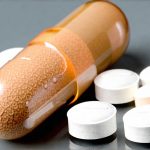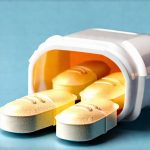Bladder issues are surprisingly common, affecting people of all ages and backgrounds. From occasional urgency and frequency to more chronic conditions like overactive bladder (OAB) and interstitial cystitis (IC), these problems can significantly impact quality of life. Many individuals seek ways to manage their symptoms naturally, leading them to explore the world of supplements. However, navigating this landscape can be overwhelming, as a vast array of products promises relief. It’s crucial to approach supplement selection with informed caution, recognizing that supplements are not replacements for medical care and should always be discussed with a healthcare professional before use.
The effectiveness of supplements for bladder support varies greatly depending on the individual, the specific condition, and the quality of the product itself. What works well for one person may not work at all for another. Furthermore, supplement regulation isn’t as strict as pharmaceutical regulation, meaning that product purity and potency can be inconsistent. This article aims to provide a detailed guide to understanding which supplements are commonly used for bladder health, how they may work, and what considerations you should keep in mind when making choices. We will emphasize the importance of partnering with your doctor or a qualified healthcare provider throughout this process, as self-treating can be risky.
Understanding Common Bladder Issues & Supplement Approaches
Many bladder problems stem from inflammation, muscle imbalances, nerve sensitivities, or structural issues. Overactive bladder often involves involuntary contractions of the detrusor muscle – the muscle that controls bladder emptying – leading to frequent and urgent urination. Interstitial cystitis, on the other hand, is a chronic condition characterized by bladder pain and pressure, thought to involve damage to the bladder lining. Urgency can also be related to dietary factors or fluid intake habits. Supplements aim to address these underlying mechanisms through various pathways, such as reducing inflammation, supporting muscle function, calming nerve activity, or strengthening the bladder wall. It’s vital to understand that supplements generally support existing treatment plans rather than cure bladder conditions.
Supplements aren’t a one-size-fits-all solution. The best approach is often multifaceted and tailored to your specific needs. For example, someone with OAB might benefit from supplements aimed at relaxing the bladder muscles, while someone with IC could focus on anti-inflammatory options. Often, lifestyle adjustments – such as dietary changes (avoiding bladder irritants like caffeine, alcohol, and acidic foods), fluid management, pelvic floor exercises, and stress reduction techniques – are equally important components of a comprehensive approach to bladder health. Remember, supplements should be viewed as part of a holistic strategy alongside conventional medical advice.
Supplements can also interact with medications or have side effects. For instance, some supplements may increase the risk of bleeding if you’re on blood thinners. Others might interfere with the absorption of certain drugs. Therefore, discussing your supplement regimen with your doctor is critical to ensure safety and avoid adverse interactions. They can help you determine which supplements are appropriate for you, based on your medical history, current medications, and specific bladder condition.
Popular Supplements for Bladder Support
Several supplements have garnered attention for their potential benefits in supporting bladder health. D-mannose is frequently recommended for preventing urinary tract infections (UTIs), which can often exacerbate bladder symptoms. It works by preventing bacteria from adhering to the bladder wall. Magnesium, particularly magnesium glycinate, is known for its muscle-relaxing properties and may help reduce bladder spasms associated with OAB. Pumpkin seed extract contains compounds that support prostate health in men but has also shown promise in reducing urinary frequency and urgency in both men and women.
Other supplements used include quercetin, a flavonoid with anti-inflammatory properties often explored for IC; vitamin D, which plays a role in immune function and may help reduce bladder inflammation; and L-arginine, an amino acid that can improve blood flow to the bladder and potentially enhance its function. However, it’s important to note that research on many of these supplements is still ongoing, and more robust studies are needed to confirm their effectiveness definitively. Always choose reputable brands known for quality control and third-party testing to ensure you’re getting a product that contains what it claims and is free from contaminants.
Finally, consider the form in which the supplement is offered. Capsules, tablets, powders, and liquids all have varying absorption rates and potential side effects. For example, liquid supplements may be absorbed more quickly but could also cause gastrointestinal upset in some individuals. Discussing preferred forms with your healthcare provider can help you choose the most appropriate option for your needs and tolerance level.
Addressing Overactive Bladder (OAB)
Overactive bladder is characterized by a sudden, uncontrollable urge to urinate, often accompanied by involuntary leakage. Supplements aimed at managing OAB typically focus on relaxing the detrusor muscle and calming nerve activity. Magnesium glycinate is frequently recommended due to its muscle-relaxing properties. Studies suggest it can reduce urinary frequency and urgency in some individuals. However, dosage varies significantly, so starting with a low dose and gradually increasing as tolerated under medical supervision is crucial.
Another approach involves supplements that support the nervous system. Certain B vitamins, such as B6, play a role in neurotransmitter function and may help regulate bladder control. L-theanine, an amino acid found in green tea, has calming properties and could potentially reduce anxiety associated with urgency. Again, these supplements are not cures but may provide supportive relief when combined with other OAB management strategies like pelvic floor exercises (Kegels) and fluid restriction.
Pelvic floor exercises are often the first line of defense against OAB, strengthening the muscles that support the bladder and urethra. Supplements can complement these efforts by providing additional support for muscle function and nervous system regulation. It’s important to remember that consistency is key when it comes to both exercise and supplementation.
Managing Interstitial Cystitis (IC)
Interstitial cystitis presents a unique challenge due to its complex and poorly understood etiology. IC involves chronic bladder pain, pressure, and discomfort, often without any identifiable infection. Supplements for IC primarily focus on reducing inflammation and protecting the bladder lining. Quercetin, an antioxidant found in many fruits and vegetables, has demonstrated anti-inflammatory properties and is frequently used by individuals with IC to alleviate symptoms.
Another potential avenue for relief lies in supplements that support the glycosaminoglycan (GAG) layer of the bladder wall – a protective barrier that’s often compromised in IC patients. D-mannose, while known for UTI prevention, may also help restore GAG layer integrity. Hyaluronic acid, another GAG component, is sometimes used as an oral supplement or administered directly into the bladder through instillations (a procedure performed by a healthcare professional). It’s crucial to consult with your doctor before considering any IC treatment, including supplements and instillations, as they can have potential side effects and interactions.
Dietary modifications are paramount in managing IC symptoms. Identifying and eliminating bladder irritants – such as caffeine, alcohol, acidic foods, spicy foods, artificial sweeteners, and carbonated beverages – is often the first step toward relief. Supplements can then be used to support this dietary approach by providing additional anti-inflammatory benefits and protecting the bladder lining.
Important Considerations & Cautions
Choosing the right supplements requires careful consideration and a proactive partnership with your healthcare provider. First and foremost, do not self-diagnose or self-treat. Bladder symptoms can have various underlying causes, some of which require medical intervention. A thorough evaluation by a doctor is essential to determine the root cause of your problem and develop an appropriate treatment plan.
When selecting supplements: – Look for reputable brands that undergo third-party testing for purity and potency. – Start with low doses and gradually increase as tolerated under medical supervision. – Be aware of potential interactions with medications or other supplements you’re taking. – Monitor your symptoms closely and report any adverse effects to your doctor. – Remember that supplements are not a quick fix but may provide supportive relief when combined with lifestyle changes and conventional treatments.
Finally, be patient and realistic. It may take time to find the right combination of supplements and strategies that work for you. Maintaining open communication with your healthcare team is crucial throughout this process to ensure safety and maximize your chances of success.





















